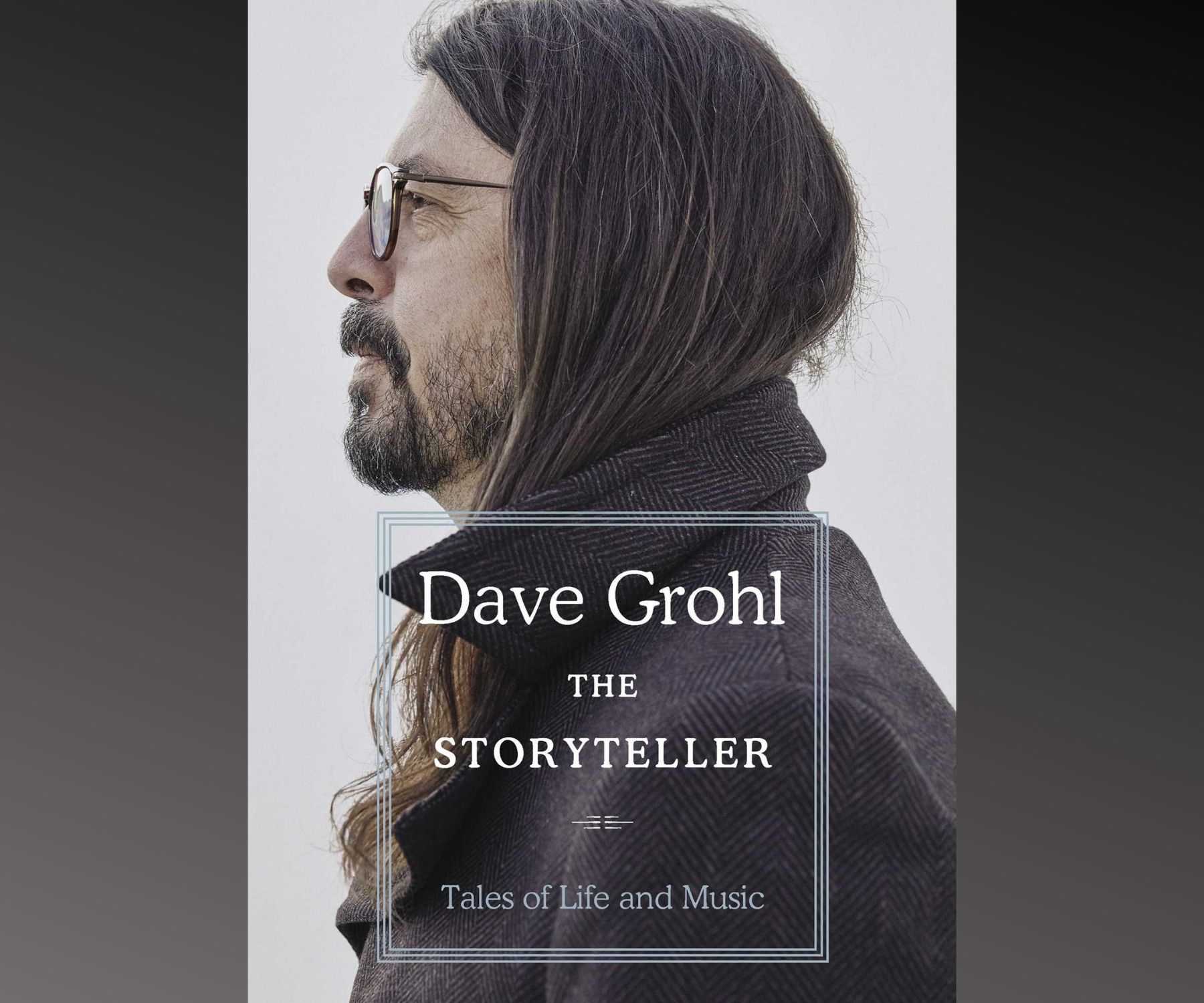THE READING ROOM: Real Moments Outshine Rock Memories in Dave Grohl’s Memoir

Very few rock memoirs feel like sitting in the room with an old friend who’s telling tales about growing up and discovering how deeply music is etched in his heart and dreams, but this is exactly how Dave Grohl’s new memoir The Storyteller: Tales of Life and Music (Dey Street, out Oct. 5) feels.
A riveting storyteller, Grohl offers charming and lively anecdotes about not just his time with Nirvana and Foo Fighters, but, clearly more importantly to him, his love for his mother, his reflections on the soul-shaping character of music, and his embrace of his life’s philosophy that “every day is still a blank slate waiting to write itself.”
As he writes in the introduction: “Though I have never been one to collect ‘stuff,’ I do collect moments. So, in that respect, my life flashes before my eyes and through my ears every single day. In this book, I’ve captured some of them, as best I can. These memories, from all over my life, are full of music, of course. And they can be loud at times.”
Grohl depicts his childhood in Springfield, Virginia, as “true seventies Americana shit. Banana-seat bikes and BB guns. A life somewhere between Rob Reiner’s Stand by Me and Tim Hunter’s classic River’s Edge.” He falls for the drums early in his life, and it’s jazz drumming that provides his model for passion and spirit in drumming and music: “I loved [jazz drummer] Lenny Robinson’s drumming. This was something I had never seen before at a punk rock show. Thunderous expression with graceful precision; he made it all look so easy (I now know it’s not). It was a sort of musical awakening for me.”
Even though he discovers his passion in music, he still feels like a bit of a misfit in high school. “As much as I wanted to fit in and be accepted within my circle of friends, deep down I felt different,” he writes. “It would be years before I found the courage to embrace my individuality, but at the time I was almost closeted, hiding my love of alternative culture for fear that I would be ostracized by the cooler kids. I played along, I suppose, but knew that I wasn’t necessarily cut out for the Key Club or the football team. I was a bit of a misfit, longing to feel understood, waiting for someone to accept the real me.”
When he visits his cousin in Evanston, Illinois, one summer, she introduces him to punk rock and a band called Naked Raygun. That night, in a punk club in Chicago, Grohl experiences a spiritual awakening, and from that moment on he imbibes the nectar dripping from the notes and chords and vocals of bands and sets his sights on rock and roll. “This was a feeling of freedom that I had waited for my entire life, and now that I’d been baptized by spit and sweat and broken glass, there was no turning back. The most important element of rock and roll had been revealed to me in Naked Raygun’s performance: the raw and imperfect sound of human beings purging their innermost voice for all to hear.”
Following this experience, Grohl immerses himself in music. Indeed, he describes music in images often used to describe religion: “There were certain things in my life that I relied on unconditionally and in which I had unwavering faith — the love of my mother, my love for her, and the love that filled my heart when I played music. And so, without the conventional structures and rules that usually went along with such things, I considered music my religion, the record store my church, the rock stars my saints, and their songs my hymns.”
Of course there are moments in the book that involve Nirvana and Foo Fighters, but they’re not the most compelling sections, and even in those Grohl slips into his reflective mood: “After years of pushing through adversity after adversity, death, divorce, and a revolving door of band members, I had persevered and come out the other end stronger, not yet ready to buy the farm.”
By the end of his memoir, he’s grateful for his family, his mother, his bandmates, and the songs that are the air he breathes. He’s always preparing for what might come next: “Not a day goes by where I don’t stop and thank the universe for these otherworldly blessings, and I make it a point to take nothing for granted,” he writes. “It will never feel ‘normal’ to me to be included in such a waking dream; it will always feel like I’m watching life happen from above, looking down at someone else’s fantasy playing out before me. But it is mine, and it’s these moments when I try to be present, reminding myself that I am perhaps the luckiest person on earth to breathe the next breath that will lead me to the next adventure.”
He closes The Storyteller with his testimony: “It’s hard to put into words the belief that I have in music. To me, it is god. A divine mystery in whose power I will forever hold an unconditional trust. And it is moments like these that cement my faith.”
Grohl’s vibrant storytelling mesmerizes from the first sentence, and his soulful memoir sparkles with wit and a love for music, family, and friends in ways that other music memoirs do not. The Storyteller should be turned up to full volume so as not to miss any notes of this rocking chronicle.




